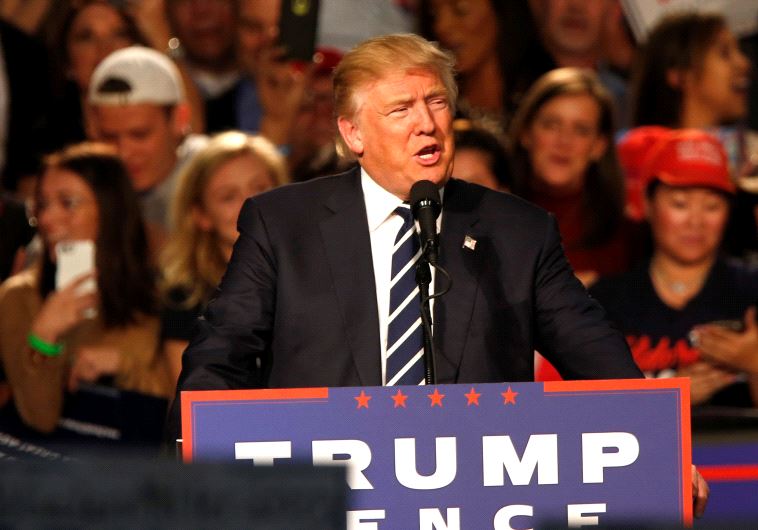Lost in transition: Waiting patiently for two months
Defense Minister Avigdor Liberman had some sage counsel for Israeli politicians this week: Don’t talk out loud yet about Trump’s Mideast polices.
 Donald Trump speaks at his final campaign event at the Devos Place in Grand Rapids, Michigan
Donald Trump speaks at his final campaign event at the Devos Place in Grand Rapids, Michigan